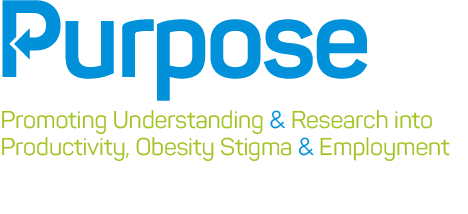Obesity stigma and employment in the Netherlands


This research is the latest output of the PURPOSE programme (Promoting Understanding and Research into Productivity, Obesity Stigma and Employment). The programme, funded by Novo Nordisk, focusses on improving national productivity levels via better employment and labour market outcomes for those living with overweight or obesity.
Despite the growing evidence of the clinical, social and economic consequences of obesity in OECD countries, it is rare to find significant attention being paid to obesity stigma and discrimination in employment. This report sets out the available data on employment outcomes for people living with obesity in the Netherlands, in an international context. It highlights data gaps in statistics regarding the stigma and discrimination experienced by people of working age living with obesity, and several areas where Dutch policy makers, healthcare professionals and employers need to take action to ensure that people living with obesity can enjoy equal employment opportunities.
Key findings include:
- In the Netherlands almost 37 per cent of adults over 20 (five million people) are living with obesity. The prevalence of obesity is higher in deprived Dutch communities, and it is strongly related to educational attainment. For example, 17 per cent of those whose education did not progress beyond secondary school are living with obesity compared with just 6 per cent among those with a university education.
- There is, on average, a 9 per cent wage penalty for working age women living with obesity compared with women of average weight. In the Netherlands this equates to an average reduction in annual earnings for women living with obesity of €2,196 for each woman or €1.48bn for all working age women living with obesity. This wage penalty appears to begin as women leave full-time education and enter the labour market and continues into later career stages. Much, if not all, of this wage penalty can be explained by stigma and discrimination.
- By 2050 over 8 per cent of health spending in OECD countries will be accounted for by treating obesity and related health conditions. In the Netherlands over €6bn of annual healthcare costs are dedicated to treating overweight and obesity and related health conditions.
- Across the OECD, obesity has been shown to reduce life expectancy by between 0.9 years and 4.2 years. In the Netherlands this figure is 3 years, with healthy life years among people living with obesity being reduced by 5.1 years compared with Dutch people of average weight.
It is predicted that, by 2040, almost two-thirds of the Dutch population will be living with overweight and obesity – an increase of 12 per cent on the 2019 data. Despite this, the most recent Dutch government obesity strategy contains almost no mention of the employment outcomes experienced by people living with obesity, although it does acknowledge that labour market stigma and discrimination are challenges in a number of settings. The report details a number of actions which could be taken by the Dutch government, Dutch healthcare professionals and Dutch employers to improve employment outcomes for people living with obesity in the Netherlands.
Novo Nordisk has provided funding to the Institute for Employment Studies (IES) to undertake the creation of the PURPOSE programme, including the production of this report. Novo Nordisk has had no influence over the content of this report or this programme. IES retains full and final editorial control over this report and all aspects of the PURPOSE programme.



